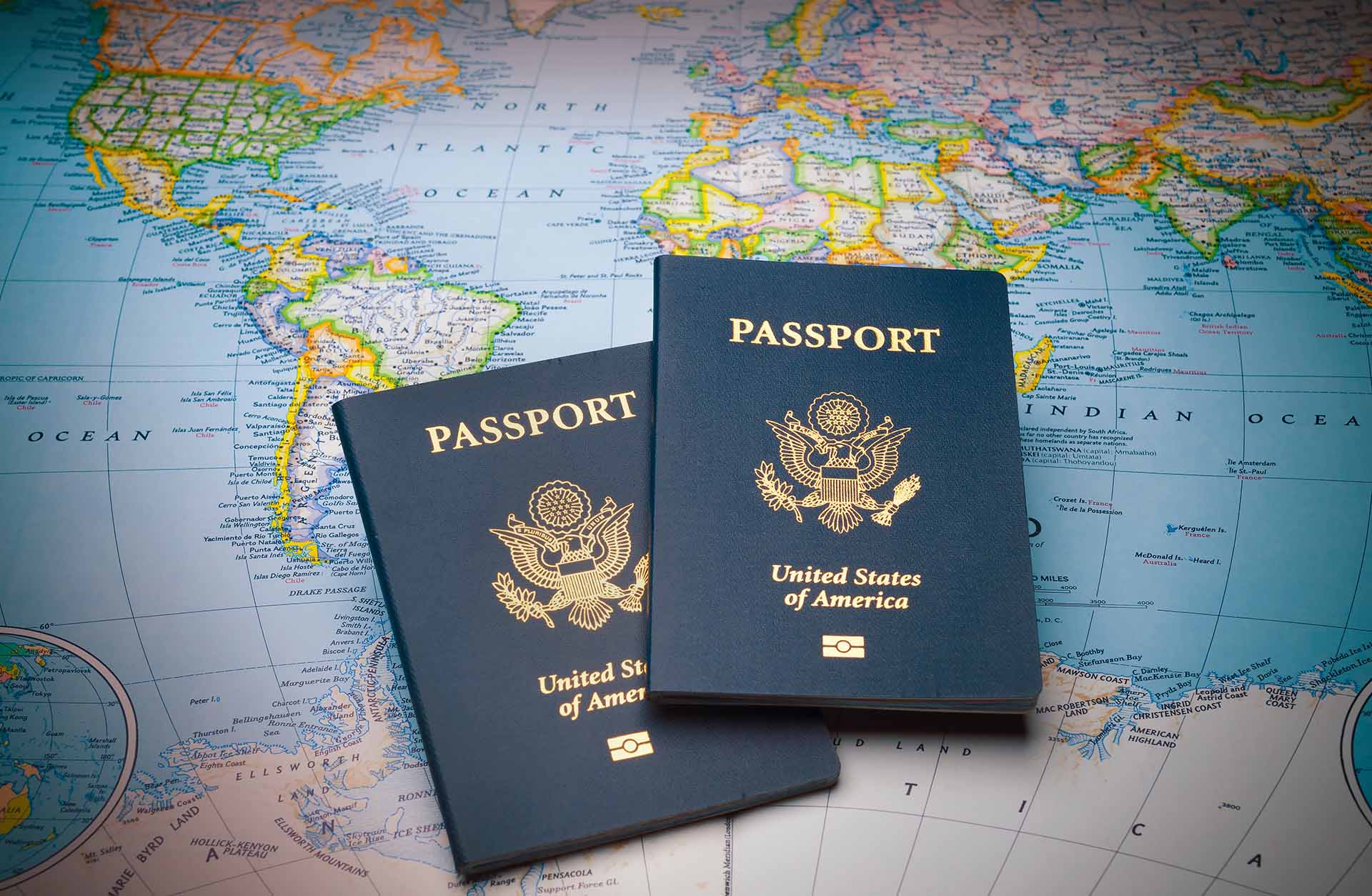When moving to Tokyo, Japan, know that there is more to the city than giant neon signs and sushi. Traveling halfway across the world will put you in a new culture with unfamiliar people, but don’t worry. This is a metropolis filled with foreigners, so you won’t feel alone.
Don’t be surprised by the big crowds. After all, this is one of the most populated cities in the world, and to truly understand it, you should learn at least the basics of the language. Also, make some friends, explore different peculiar restaurants and bars, and partake in festivals. After a while, you’ll feel more like a local than an expat.
Collecting All the Necessary Documents Before Moving to Japan
When crossing the border, you have to think about the documents needed to travel abroad. When you’re relocating to Japan, know that there are nearly 30 different visas you can apply for. The most popular ones are work visas, tourist visas, and general visas. Contact the embassy and figure out which one will fit your needs the best.
Generally, every type of work visa application requires:
- A valid passport
- A photo
- A filled-out visa application form
- Certificate of eligibility.
This certificate of eligibility is issued by the Immigration Services Agency, and you can fill it out in the consulate or embassy or just mail it.
The cost of the visa will depend not only on the type of your visa but on the number of entries and your nationality. On average, a single entry will cost about $30, while for multiple entry visas, you have to pay $60.
You Will Need a New Driver’s License in Japan
If you are considering shipping your car overseas, remember that every resident that stays for more than 12 months in the country must obtain a Japanese driving card. Begin by translating your current permit in order to get a new one that is called “gaimen kurikae.” Translation will cost you around $28 (3000 JPY). When you get a new permit that is valid for five years, you can use it to drive a motorbike of up to 50cc engine capacity as well.
You’ll Need Health Insurance
Do you know that it’s a legal requirement to have health insurance here? The country is famous for its high standard and efficient healthcare. The emphasis is on preventative care, and that’s why this is a nation with one of the highest life expectancies in the world.
If you plan to relocate without a job, you will need to register for National Health Insurance (Kokumin Kenko Hoken). With it, you’ll be required to cover 30% of your medical costs, while the government covers the rest.
On the other hand, if you have a job, you can get an employee health insurance plan (Kenko Koken). It covers between 70% and 90% of your medical costs. In general, insurance will cost between $45 and $90 (5,000-10,000JPY), but that can vary depending on your medical needs. Also, people who are between 40 and 65 years old pay an additional 2% for nursing care fees.
Set up a Bank Account
Living as an expat means you will have to get used to the way locals go about their finances. Luckily, as one of the leading global economies, the financial and banking system is similar to the one we have in the US.
To be able to set up a bank account, you will need a residence card, passport, visa, address, and phone number, as well as a personal stamp (Hanko seal). Hanko seal is something locals use instead of a handwritten signature, and you can create it on many kiosks.

An Essential Step Is Finding a Place to Live In
Japan’s capital, especially its greater area, is one of the most populated cities in the world. This ultra-dynamic urban jungle is divided into 23 wards or mini-towns called ku, making the process of getting around easier and less confusing for all residents.
Finding accommodation here might be tricky. That’s why you should consider hiring a real estate agent or a realtor. Even though there are no restrictions for foreigners to buy properties, most of them opt for renting. When you’re thinking about what to pack when moving abroad, consider the fact that some older apartments might lack some amenities that you are used to in the States. Nevertheless, there are some modern western-style places you can rent as well; you will just have to pay a little bit extra for them.
The mix of tourist attractions and hyper-modern buildings might surprise you at first, but when you spend enough time in the metropolis, you will get used to it. Living overseas can get overwhelming; that’s why some foreigners prefer living in expat-dominated areas, such as the Korean quarter.
If you would rather have an apartment that is close to your office, public transportation stops, and good schools, you should check out popular districts and pick the one that suits your needs the best.
Most Popular Neighborhoods in Tokyo
Around 13.5 million people live in the metropolis, and 9.2 million of those live in some of the 23 wards, or ku-s. Depending on your budget, needs, and overall desires, there are many neighborhoods you can call home, but expats mostly flock to:
- Minato and Meguro – home to nearly 19,000 expats and big employers such as Fujifilm, Air France, Sony, Google Japan, and Fujitsu. Besides enterprises, there are embassies of Russia, Switzerland, Italy, France, Canada, the US, to name just a few. Foreigners choose to live here because of the vicinity to work and luxurious residential spaces.
- Shibuya is a ward that is divided into more than three dozen smaller areas. Some of them have more of a business vibe, while others are all about high fashion and design. If you want to get an apartment here, remember that there is a bit of everything for everyone.
- Shinjuku has an expat population of 41,000. There are plenty of smaller neighborhoods within it, and each one is different. Shinjuku-ni-chōme is famous for its LGBT culture, nightlife, and massage parlors. This is a place you pick if you want to live an adventurous, party-filled life. On the other hand, the Ichigaya neighborhood has a business vibe, with skyscrapers, commerce, and admission buildings. Finally, if the business and nightlife atmosphere is not for you, there is a more traditional area called Kagurazaka, where you will meet many French expats.
- Beyond the center, you will encounter more traditional and suburban locations, where more than 18,000 immigrants live.

How to Find Work When Moving to Tokyo
We highly recommend getting professional international moving services so that you can focus on the job hunt. Finding employment in the largest metropolitan economy in the world shouldn’t be that hard if you know where to look.
Japan’s capital is the center of many service industries, such as transport, tourism, and finance. If you have experience in any of these, you will easily land a few interviews in some of the multinational companies located here.
Those who speak Japanese will easily navigate through job interviews, and even if you want to work in an international company, speaking the official language of the country is always a plus.
Before you apply for a job opening, rewrite your resume to fit the standard form used in the country. Rirekisho, as people here call the resume, provides more information than the one you are used to. Once you’ve written a Rirekisho, you’re ready for a serious and dedicated job search.
Job Opportunities for Foreigners
When looking for work, the internet is your friend. You can even check out the job market and ads before you actually relocate. While you’re taking a breather from all moving tasks, visit sites such as Daijob, or JobsinJapan – there are plenty of offers there for expats.
Yes, this economy allows you to land a job in many sectors, but some are more expat-oriented than others. This is a great place to look for teaching jobs or check out the military, engineering, manufacturing, and IT industry.

There Is a Million and One Way You Can Learn Japanese
According to research results, around 72% of Japanese folks aged between 20 and 49 can’t communicate in English. That’s why it’s up to you to think about breaking the language barrier when relocating.
Even while still packing your things, go online and learn a few useful phrases. You need to be able to say some basics, such as thank you and good morning, as soon as you land in Japan.
Japanese seems like a hard language to master, but after you relocate, learning a language abroad becomes easier. You will be surrounded by native speakers, making it easier to pick up phrases, pronunciation, and slang.
You can always enroll in language courses and have a professional tutor teach you all the language secrets, or you can settle down in your home and look for local tutors. That way, you will be learning from somebody who is a native speaker, but at a reasonable price.
Take your time while learning. It might seem like a long process, but in the end, it will be worth it. When you understand the language that the natives speak, you’ll be able to understand the culture and customs better as well.

Learning About Culture Is Important When Settling Down in Tokyo
“If you go to Tokyo, I think it becomes very obvious that there’s this almost seamless mixture of popular culture and Japanese traditional culture,” as Kazuo Ishiguro, a famous Japanese writer and novelist, said. The mix of traditional culture with the urban and modern one doesn’t seem like a match made in heaven, but when it comes to this metropolis, it sure does.
This is a home to many museums, such as the National Museum of Western Arts and the National Museum of Emerging Science and Innovation. If you feel like you just want to relax, multiple festivals take place throughout the year, bringing you fireworks, decorated floats, and parades.
If you are stuck and don’t know what to do on a particular day, you can act like a tourist and check out some of the most popular spots and happenings in the area.
Popular Things to Do in Japan’s Capital
When adjusting to a new country, doing things that locals do or checking clubs and events that fit your interests is the way to go.
Every manga and animated movie enthusiast will love checking out the Ghibli Museum, where they can learn about all the ways animated movies are made. Would you like to see how Disneyland would look if it was dedicated to Hello Kitty? Make a stop at Sanrio Puroland. This theme park is for everybody, no matter how young or old you are.
If you are relocating with your kids, plan a day outside and check out some of the many parks. Since the beginning of the “10 Year Project for Green Tokyo,” the city has invested a lot in green surfaces, providing its residents with plenty of outdoor spaces where they can walk, enjoy nature, or have a picnic.
When you feel like you need to kick back and relax, you can always go out and have a lovely dinner at restaurants with some uncommon settings. Every goth-loving individual will enjoy the sparkly wine and spooky atmosphere of the Vampire Cafe, and for those more adventurous, there is a special Dracula Room. You can also get lost in the wacky set up of Alice in a Labyrinth, or get your geek on in Kabukicho Robot Restaurant inspired by sci-fi movies and novels.
There is no such thing as “usual” in this metropolis, so be prepared to embrace the weirdness. After a while, you won’t even notice it.

Let Yourself Be a Part of the Community
The Land of the Rising Sun welcomes more than 24 million people from all over the world every year. They come to bask in the glory of one of the oldest cultures, and, luckily, you chose to settle down here. This decision gives you more time than tourists usually have to explore this great nation.
Start by experiencing the uniqueness of the streets of Japan’s capital. Walk, take photos, dress like a local, check out the alternative Harajuku fashion, immerse yourself in everything that represents the city. Moving to Japan and its capital and being a part of this community means understanding it and enjoying all of its perks and quirks. “The proudest residents look after their city” the way it looks after them.












